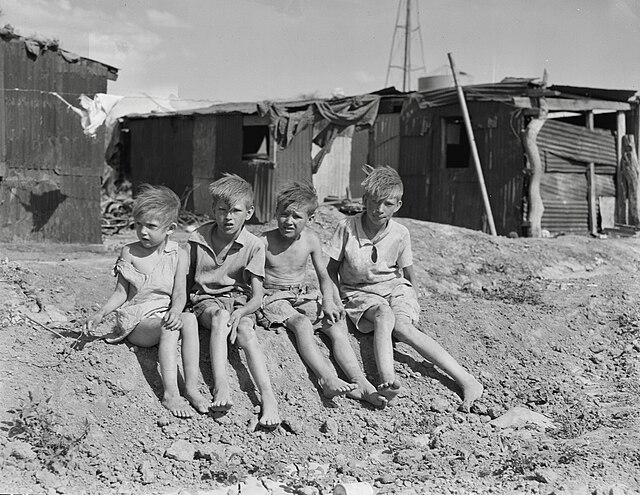Poverty is a state or condition in which one lacks the financial resources and essentials for a certain standard of living. Poverty can have diverse environmental, legal, social, economic, and political causes and effects. When evaluating poverty in statistics or economics there are two main measures: absolute poverty compares income against the amount needed to meet basic personal needs, such as food, clothing, and shelter; relative poverty measures when a person cannot meet a minimum level of living standards, compared to others in the same time and place. The definition of relative poverty varies from one country to another, or from one society to another.
Children of the Depression-era migrant workers, Arizona, United States, 1937
An early morning outside the Opera Tavern in Stockholm, with beggars waiting for scraps from the previous day. Sweden, 1868.
Worlds regions by total wealth (in trillions USD), 2018
A Somali boy receiving treatment for malnourishment at a health facility
Extreme poverty is the most severe type of poverty, defined by the United Nations (UN) as "a condition characterized by severe deprivation of basic human needs, including food, safe drinking water, sanitation facilities, health, shelter, education and information. It depends not only on income but also on access to services". Historically, other definitions have been proposed within the United Nations.
UNO Conference 2011, on least developed countries
United Nations Headquarters, Geneva
USAID Urban Search and Rescue team Fairfax County performs search and rescue operations in Haiti, 17 January 2010.







